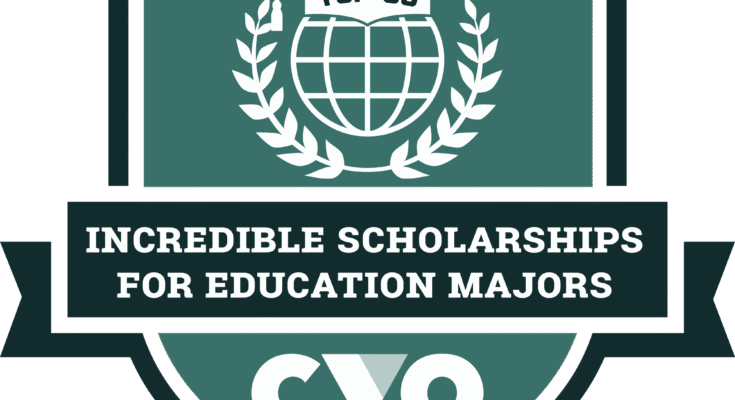Scholarship Resources for Education Majors: Step By Step Guide to Funding Your Teaching Degree
If you’re passionate about shaping young minds and making a difference in the classroom, pursuing a degree in education is a powerful step forward. However, the rising cost of higher education can be a barrier. Fortunately, numerous scholarship resources are available specifically for education majors. In this guide, we’ll explore the best scholarship opportunities, how to apply, and tips to increase your chances of success.
Why Scholarships Matter for Education Majors
Education majors often pursue careers in teaching, counseling, or administration—fields that offer emotional rewards but sometimes come with modest starting salaries. Scholarships can significantly reduce student loan debt, allowing future educators to focus on their passion for teaching rather than financial stress.
Top Scholarship Resources for Education Majors
Here are some of the most reputable and generous scholarship options for students pursuing education degrees:
1. TEACH Grant (Teacher Education Assistance for College and Higher Education Grant)
- Amount: Up to $4,000 per year
- Eligibility: Undergraduate or graduate students enrolled in teaching programs who commit to teaching in a high-need field at a low-income school for at least four years.
- Website: Apply
2. James Madison Graduate Fellowships
- Amount: Up to $24,000
- Eligibility: Students who plan to become secondary school teachers of American history, American government, or social studies.
- Website: Apply
3. Federal Pell Grant
- Amount: Up to $7,395 (2024–25 award year)
- Eligibility: Based on financial need, open to undergraduates in any field including education.
- Website: Apply
4. National Council of Teachers of Mathematics (NCTM) Scholarships
- Amount: Varies by program
- Eligibility: For prospective and current teachers of mathematics.
- Website: Apply
5. Jack Kent Cooke Foundation Undergraduate Transfer Scholarship
- Amount: Up to $55,000 per year
- Eligibility: For students transferring from a community college to a four-year institution.
- Website: Apply
6. State-Based Scholarships for Teachers
Many states offer financial aid to students studying education. For example:
- California: Assumption Program of Loans for Education (APLE)
- Texas: Teach for Texas Loan Repayment Assistance Program
- New York: NYS Math and Science Teaching Incentive Program
Search your state’s education department website for local scholarships.
Tips for Applying to Scholarships
1. Start Early
Many scholarships have early deadlines, especially those linked to government grants or large foundations. Start researching at least a year in advance.
2. Tailor Your Application
Customize your application essays to reflect your passion for education and community impact. Use specific examples of teaching experience, volunteer work, or leadership roles.
3. Gather Strong References
Letters of recommendation from professors, school principals, or education mentors can strengthen your application.
4. Apply Widely
Don’t limit yourself to one or two scholarships. Apply for as many as you’re eligible for—even small awards add up.
5. Stay Organized
Use a spreadsheet to track deadlines, application status, requirements, and outcomes.
FAQs About Scholarships for Education Majors
Q1: Can I apply for multiple scholarships at once?
Yes, students are encouraged to apply for as many scholarships as possible. Receiving one does not usually disqualify you from others, unless stated.
Q2: Do I need to repay scholarships?
No, scholarships are typically gift aid and do not need to be repaid, unlike student loans. However, some grants like the TEACH Grant require you to fulfill service obligations.
Q3: Are there scholarships for graduate education students?
Absolutely. Many scholarships target both undergraduate and graduate students. Programs like the James Madison Fellowship specifically cater to graduate students in education.
Q4: What GPA do I need to qualify?
Requirements vary, but most scholarships look for a minimum GPA of 3.0. Competitive programs may have higher thresholds.
Q5: Can international students apply for education scholarships in the U.S.?
Some scholarships are limited to U.S. citizens or residents, but private scholarships or university-specific grants may be available to international students.
Conclusion
Pursuing a degree in education is a meaningful journey—and one that shouldn’t be hindered by financial limitations. With countless scholarship resources available, education majors have the opportunity to reduce or eliminate student debt. Start early, stay organized, and apply widely. Whether you dream of becoming an elementary teacher, a college professor, or an education policy advocate, there are funding opportunities ready to support your goals.
Take advantage of the scholarships mentioned above and continue researching local, state, and institutional aid. Your path to a fulfilling career in education is not only valuable—but financially possible.




